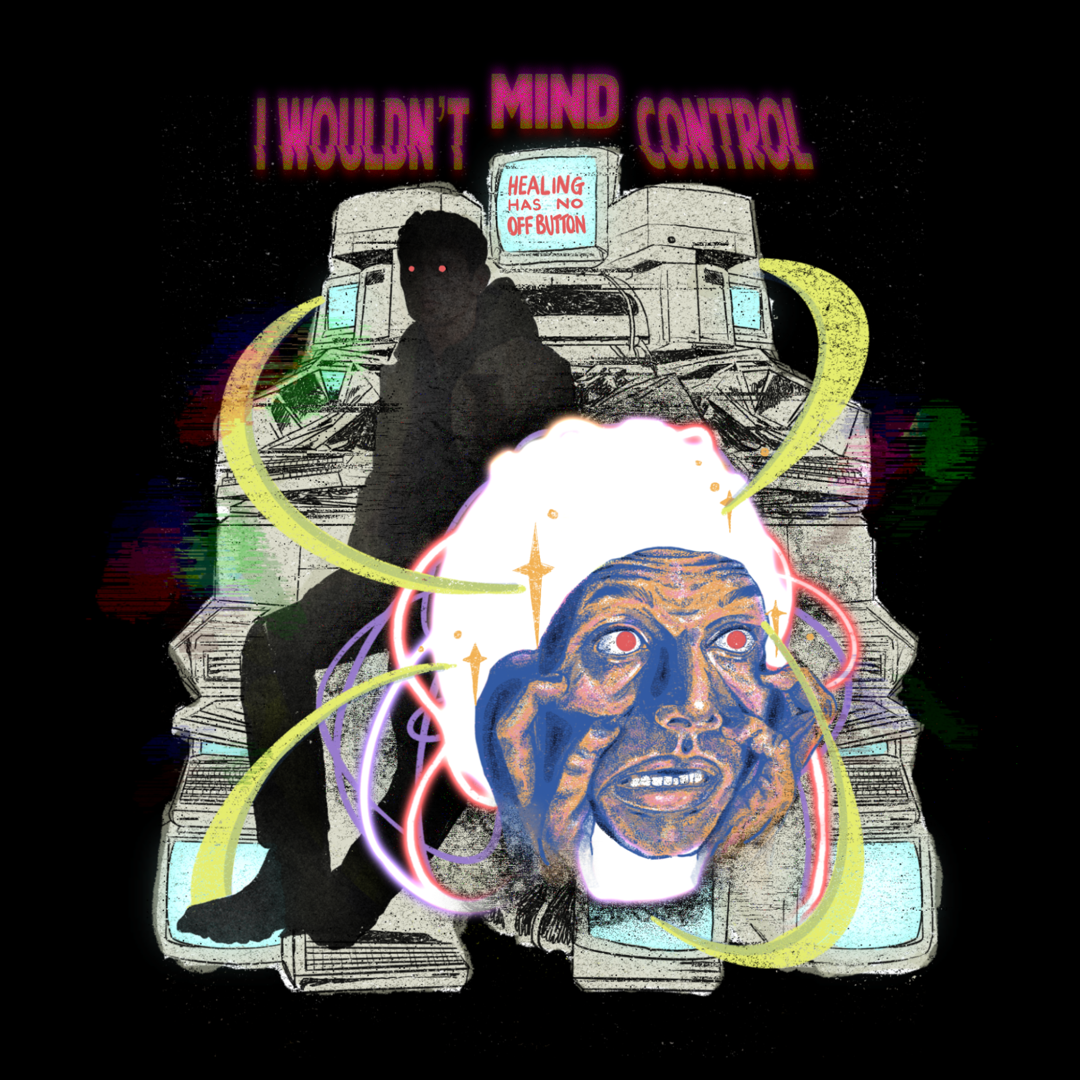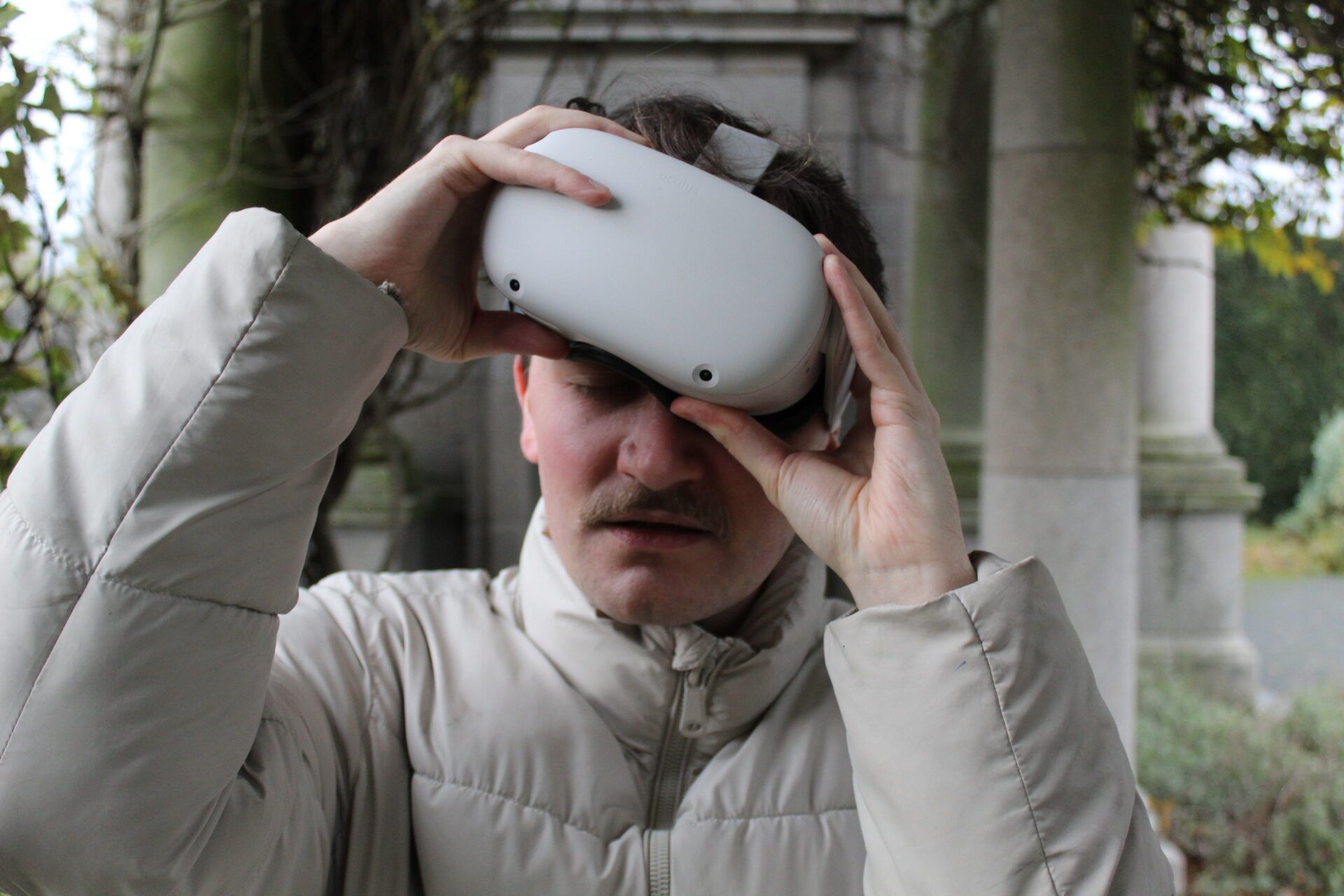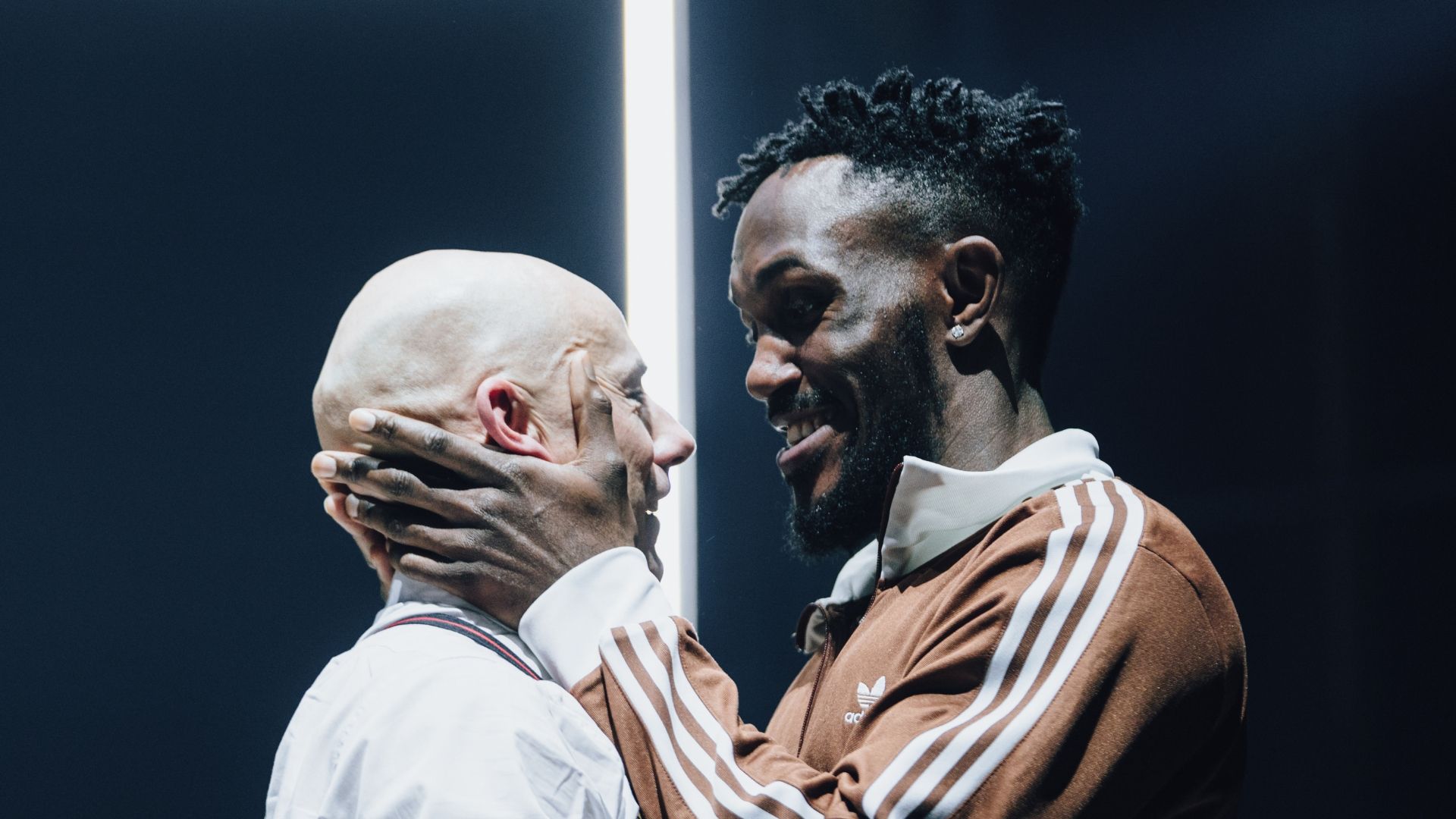It centres on Daniel Lanigan, a non-binary journalist struggling with OCD who desires control in their life. They agree to test an experimental VR therapy, but inside the brain space – an abstract and dreamlike digital realm where memories are reconstructed by an AI assistant, named Summer – they soon find themselves trapped in a nightmare of their own making.
As Summer begins to mimic Daniel, she incorporates their thinking into her own internal logic. And so, when she begins to glitch, she creates a horrifying environment which embodies the disordered nature of OCD.
OCD is an oft-misunderstood mental disorder defined by intrusive, repetitive thoughts and ritualistic behaviours. When asked how real life influences their work, artists often eschew the question. Let the art speak for itself, they might say – a philosophy I generally subscribe to, only the parallels between Daniel and I are far too transparent to ignore.
Like Daniel, I have struggled with OCD from a young age, and I have, on several occasions, teased a potential non-binary identity (I’m still figuring it out, leave me alone). Although I have not sought an AI therapist, I have, throughout my life, found comfort in online spaces in which I have met several like-minded queer people. I am a journalist too, and Daniel’s full name even has the same number of syllables I carry in my own. Write what you know, I guess.
OCD is no fun. By the time I was 11 years old, I was washing my hands so excessively the skin on my knuckles cracked and bled. As I grew older, the behaviours matured with me. The repetitive thoughts that plagued me forced me to think – again and again and again – about how evil and vile I was. I developed intricate coping mechanisms to deal with it. Replacing handwashing was several strange behaviours – everything from smacking my head repeatedly to doing secret hand gestures that only I knew. All to keep the thoughts at bay.

I still struggle with OCD, but have found solace in therapy, and can now better manage my symptoms. Writing I Wouldn’t Mind Control has been cathartic too. Using the sci-fi I grew up on – everything from the novels of Philip K. Dick to comic books about parallel worlds and time travel – I found a basis for a story that is both personal and universal.
I co-wrote the piece with Fionn Cleary, whose razor-sharp wit elevated the material to new heights with each successive draft. The play is directed by Ferelith Kingston, who has been directing theatre since 2018. Her approach is collaborative, and she handles the material with a great deal of sensitivity and care.
When I started casting the piece last November, I was overwhelmed by the response I received for the role of Summer AI. Something about a cold artificial intelligence that shows signs of an uneven personality really resonated with performers. In the end, I received upwards of 12 audition tapes for the role, many of them excellent. But it was Meghan Reid who really stood out to me: She embodied not only the machine-like coldness required for the role, but also displayed the versatile range needed to show the character’s mood and tone switches.
Daniel and Summer are guided through the brain space by Dr. Morpheus O’Neill, the charismatic but manipulative tech CEO behind the experiment who echoes real-world figures like Elon Musk and Mark Zuckerberg. He is charming, if not pretentious, but underneath is something calculated, a palpable undercurrent of menace.
I had seen Jackson Ryan perform in The Last Incel, a dark comedy about the misogyny inherent to far-right chat rooms and forums. I knew he could play menacing, but he also succeeds in pretend-affability. He is perfect for the role.
I have said previously that, as a queer person, I have found refuge in digital spaces. This is not uncommon for people like us, but, increasingly, it seems like that world is growing more and more hostile too. And that is driven in no small part by people like Dr. Morpheus O’Neill, who are scaling back on social progress in tech spaces. Twitter is swarmed with Nazis. Facebook feeds are flooded with homophobic and transphobic cartoons.
Morpheus berates Daniel, and treats them to a series of queerphobic micro-aggressions – the little psychic knicks that hurt us and build up over time. The unchecked power of big tech looms large over the play. Dr. Morpheus O’Neill embodies the worst of tech CEOs – willing to exploit human vulnerabilities.
The play’s otherworldly soundscape is performed live by Paul Prior, an award-winning music director and performer who works with Egg cabaret. The score’s electronic and ambient nature is designed to reflect the liminal space of the main character’s mind and the terrifying disordered nature of OCD.
The electronic score pulses throughout, shifting from calming sounds to something loud, jarring and repetitive as Daniel’s mind is impacted.
Lighting designer Conor McGowan has developed theatre lighting to complement the music and the thematic elements of the work. The play is co-produced by me, my collaborators in the Rock Bottom Saloon (Denny Redmond and Jack Maguire), and Eoin Mason, an experienced and talented improv performer.
I Wouldn’t Mind Control is both personal and timely. By blending elements of sci-fi and psychological thrillers with relevant themes including AI, mental healthcare, and being queer and online in 2025, the play is a perfectly-crafted and urgent response to our contemporary moment.
I Wouldn’t Mind Control takes place on Saturday 22nd and Sunday 23rd February 2025 at 6:30pm in the main space of Smock Alley, as part of the Scene + Heard festival. Tickets are available here.













